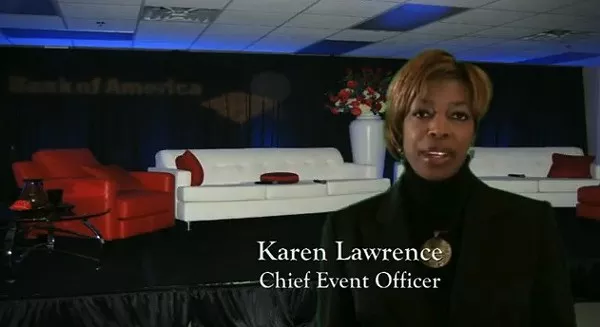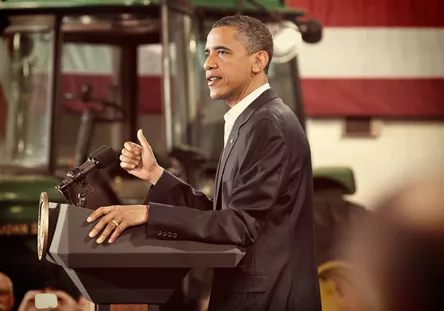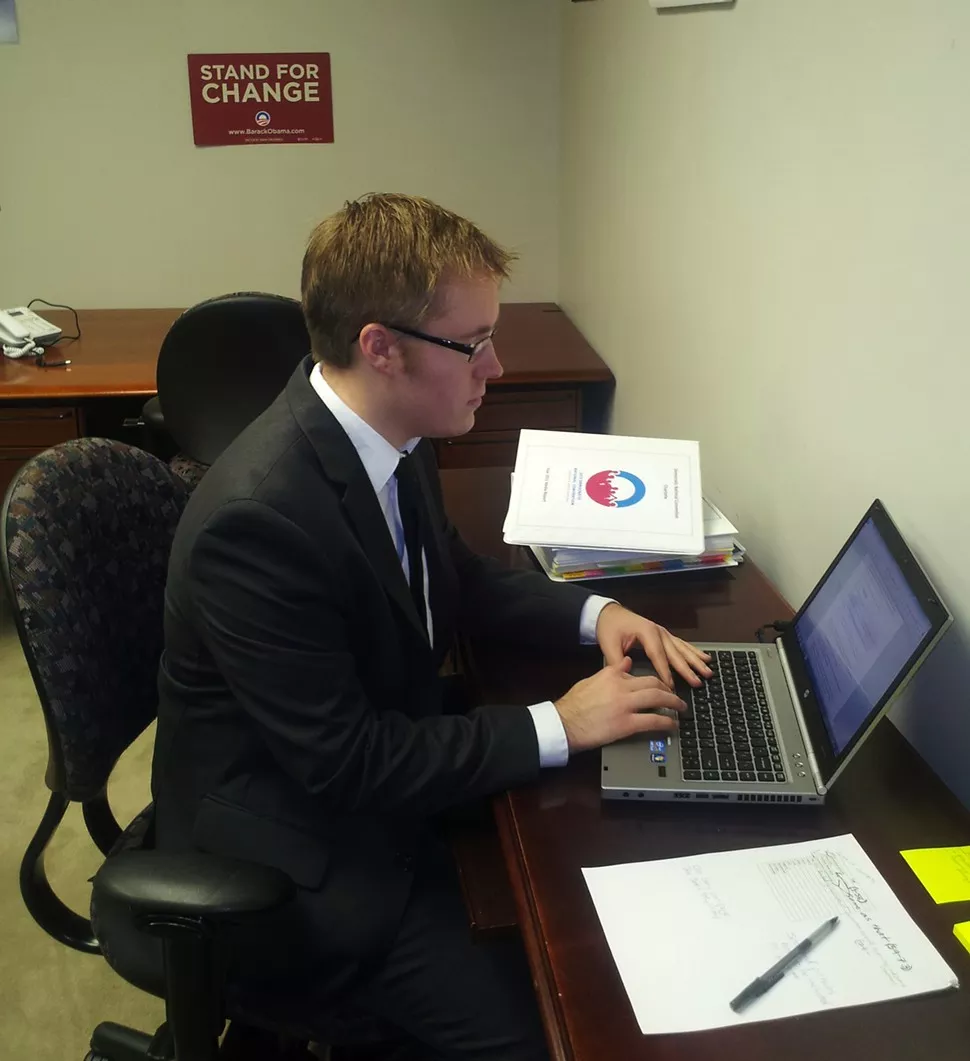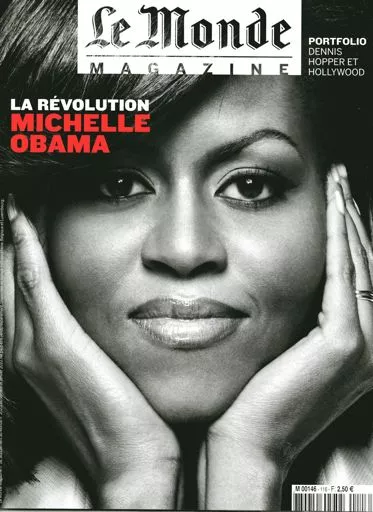Democratic National Convention 2012
Thursday, January 19, 2012
Democratic National Convention 2012 Democratic National Convention 2012 Notebook: Democrats try to recapture mile-high magic
Posted By Mary C. Curtis on Thu, Jan 19, 2012 at 9:00 AM
On Wednesday, 500 members of the media from outlets across the country and as far away as Qatar and Japan got a logistical briefing and walkthrough of convention sites. During the convention, about 15,000 members will descend on the city.
By choosing Charlotte as the site of this year’s September convention, Democrats had already signaled that the party “is not going to cede any ground” in North Carolina, Democratic National Committee Chair Debbie Wasserman Schultz said on Tuesday. In the last election, Obama won North Carolina by just 14,000 votes. With the party in the state and “on offense,” Wasserman Schultz said, it hopes to “keep North Carolina blue just like it helped to turn Colorado blue in 2008.”
Monday, January 16, 2012
Democratic National Convention 2012 Democratic National Convention 2012 Notebook: Shoring up the base
Posted By Mary C. Curtis on Mon, Jan 16, 2012 at 9:27 AM
As the remaining GOP presidential hopefuls blanket South Carolina and clog its airwaves with negative ads in anticipation of that state’s Jan. 21 primary — and the last chance for a non-Mitt Romney to catch fire — N.C. Democrats are generating enthusiasm in their own ways.
They certainly have something to rail against, namely the General Assembly’s late-night session called to override Gov. Bev Perdue’s veto of a bill that strips a teacher’s group from a dues check-off privilege. Add to that N.C. redistricting squabbles and local disagreements over everything from school board appointments to county commission leadership changes.
Some of the frustration was certainly vented at this week’s meeting of the Uptown Democratic Forum, DNC member Pat Cotham’s monthly session at the Levine Museum of the New South. Members of the North Carolina Association of Educators, the Hispanic-American Democrats of North Carolina and elected officials added their voices. (New Mecklenburg County Commission Chair Harold Cogdell sat across the room from fellow Democratic commissioner Vilma Leake — I felt a chill.)
Wednesday, January 4, 2012
News / Democratic National Convention 2012 Democratic National Convention 2012 Notebook: Dems, Charlotte and the homeless problem
Posted By Mary C. Curtis on Wed, Jan 4, 2012 at 6:54 PM
Even when issues don’t seem to have an impact on the Democratic National Convention coming to Charlotte in September, they do.
For instance, the convention was noted by Maria Hanlin, executive director of Mecklenburg Ministries, before she introduced Souls of Our Neighbors: Fears, Facts and Affordable Housing. A crowd filled the Wells Fargo Auditorium at the Knight Theater on Tuesday to view the 28-minute documentary that presents Charlotte’s increasing problem of homelessness and the struggles of the working poor to find housing through the eyes of six families.
In the middle of a 10-year plan to alleviate the problem, there are still more than 4,700 homeless children in Charlotte-Mecklenburg Schools. What's more, day-care workers, health aides, service reps and others in low-paying jobs still spend more than half their paychecks on rent and utilities (the goal in affordable housing is 30 percent or less).
Will the prospect of a national and international spotlight kick-start efforts from nonprofits, faith congregations, businesses and others, to alleviate the problem? Communities such as Ballantyne have rejected plans to construct affordable housing because, in part, of what the documentary calls myths — that it brings crime and lowers property values.
In Souls of Our Neighbors, ministers, law enforcement officials, housing development experts and those who have had their lives changed by a safe and stable place to live try to dispel the fears with personal stories. The sentiment they express: It’s “more than shelter.” At my home parish of St. Gabriel, a weekly host of the Room in the Inn program, many of those who come for a night’s shelter and a few meals work at low-paying jobs and include women and children.
Friday, December 30, 2011
Democratic National Convention 2012 Democratic National Convention 2012 Notebook: GOP contest captures headlines, Democrats take a breather
Posted By Mary C. Curtis on Fri, Dec 30, 2011 at 12:23 PM
You don’t have to travel to Iowa to glean the latest on the Republican contest for the presidential nomination. GOP politicians in the Carolinas are weighing in, trying to prove their relevance before the nomination is sewed up and endorsements no longer matter. Democrats look to control the narrative, in North Carolina anyway, as preparations begin in earnest for the 2012 convention in Charlotte. But to do it, they will have to cut through the noise of the contentious GOP contest.
On Tuesday, political observers will be watching the Iowa caucuses, where a confident Mitt Romney is polling close to top contender Ron Paul and the once-surging Newt Gingrich is losing support. Rick Santorum, with an appeal to the state’s religious conservatives, is experiencing his own surge and hoping for a miracle.
Thursday, December 15, 2011
Democratic National Convention 2012 Democratic National Convention 2012 Notebook: DNCC gathers gifts for overseas N.C. troops
Posted By Mary C. Curtis on Thu, Dec 15, 2011 at 12:23 PM
When I spoke with Democratic National Convention CEO Steve Kerrigan this past summer, he emphasized his team’s commitment to community service. On Wednesday, he put that commitment in action, as staff of the convention and host committees gathered at Time Warner Cable Arena — the site the 2012 convention — assemble 500 care packages for N.C. troops serving overseas.
For some, it was personal. Judy Corley, the DNCC general counsel, has a 25-year-old nephew, Clifford Corley, serving in Afghanistan as a drone mechanic. “I’m going to send him a box,” she said.
He’ll open it to find a bit of North Carolina: local sports-team memorabilia and coupons for future Bobcats tickets; snacks, including Lance Crackers; scenic postcards; practical items including soap, shampoo, sunscreen, notebooks, pens and AT&T phone cards; and letters from students at Allenbrook Elementary, where DNCC staff members volunteer as tutors and mentors. “We want to give back; it’s part of being an American,” Kerrigan said, praising the community partners that donated items. The troops have “sacrificed so much for our country and North Carolina."
Friday, December 9, 2011
Democratic National Convention 2012 Democratic National Convention 2012 Notebook: DNCC looks for next class of interns
Posted By Mary C. Curtis on Fri, Dec 9, 2011 at 3:23 PM
Time is running out on internships at the Democratic National Convention Committee for Shaneice Simmons, Douglas Cole and Miguel Jaramillo. But the three Central Piedmont Community College students hope to return for the January-April session, to learn about politics and business and to help shape the 2012 Democratic convention in Charlotte.
The “class” will expand from 10 to 40 openings for students from colleges and universities in the region, with a Dec. 16 deadline for applications, so there will be plenty of opportunities that range from greeting visitors at the front desk to assisting department heads with special projects. (Students can go to their college career centers for information.)
“Everybody who works here has been an intern at one time,” said Cole. “Everybody was new.” The 24-year-old sophomore, a history major with a minor in education, has always been politically active and seems the one most likely to run for office some day. A registered Independent, he worked for Hillary Clinton’s campaign in 2008 and Organizing for America in 2010. Though Cole is earning some credit for a political science class, he said that wasn’t a consideration. The native of St. Clair, Mich., said, “It’s a chance to be involved in something this big in a city I’ve grown to love.”
Tuesday, December 6, 2011
Democratic National Convention 2012 Democratic National Convention 2012 Notebook: A tiny business strikes a giant deal
Posted By Mary C. Curtis on Tue, Dec 6, 2011 at 9:16 AM

For one small local business — actually, a business of one — the Democratic National Convention’s vendor directory worked as advertised. “It will be my biggest contract,” said Karen Lawrence, a Charlotte-based meeting and planning designer, whose firm, It’s My Affair, will partner with two Atlanta-based firms on housing services for the 2012 convention in Charlotte.
On Monday, the Democratic National Convention Committee and the Committee for Charlotte in 2012 announced that the team of EventSphere, Akintayo Management Group and It’s My Affair will serve as the convention's housing services vendor.
Thursday, December 1, 2011
Democratic National Convention 2012 Democratic National Convention 2012 Notebook: International journalists frame Charlotte’s story
Posted By Mary C. Curtis on Thu, Dec 1, 2011 at 12:00 PM
Members of the convention and host committees have insisted all along that the week-long press exposure next September will leave a lasting impression, economic and otherwise. While the sheen of being chosen as a convention city didn’t lure Chiquita’s global headquarters to Charlotte (it was the more than $22 million in incentives and a spiffy airport that trumped Cincinnati’s, said the company's chairman and CEO, Fernando Aguirre, on Tuesday), the DNC certainly didn’t hurt.
Chiquita will join other international firms adding jobs and money, Charlotte hopes, diversifying a city that is branding itself as an energy capital, a health services center and all-around fun place to live and work. It was a message repeated to the handful of journalists in a packed two days of meetings and activities that hit all the expected notes, with visits to vast work sites, an airport bus tour led by aviation director Jerry Orr and a look at all things NASCAR that included a spin around the track.
Tuesday, November 22, 2011
Democratic National Convention 2012 Democratic National Convention 2012 Notebook: Charlotte, Tampa get security funds for conventions
Congress approves $50 million each for host cities
Posted By Mary C. Curtis on Tue, Nov 22, 2011 at 2:10 PM
Last week, both the House and the Senate approved the $50 million grant — that’s $50 million for each city — and on Friday, President Barack Obama signed the bill that included the funding. The mayors of both cities had asked for $55 million each during a joint visit to Washington, but were relieved to receive what past conventions had been allocated.
Mayor Anthony Foxx issued a statement from China — where he was traveling on an economic development trip — thanking Tampa Mayor Bob Buckhorn, as well as Charlotte City Manager Curt Walton, Charlotte-Mecklenburg Police Chief Rodney Monroe, the DNCC and the bipartisan efforts of the North Carolina congressional delegation. Foxx said the money would help “ensure enhanced public safety measures for Charlotte residents and visitors during the convention.” On Monday, at Foxx's first media briefing after his return to Charlotte, the mayor said he “felt very strongly that we would get it done, and it appears that we have.”
Wednesday, November 16, 2011
Democratic National Convention 2012 Democratic National Convention 2012 Notebook: DNC headquarters is an art gallery on the lucky 13th floor
Posted By Mary C. Curtis on Wed, Nov 16, 2011 at 9:17 AM
During the debut media tour of the Democratic National Convention Committee’s offices at 400 S. Tryon St. uptown, my first question was, “the 13th floor?” The convention's CEO Steve Kerrigan smiled. "We take the available floor," he said. "We're not superstitious."
The DNC team may not be superstitious, but it's conscientious of local flavor. The 17,500 square feet for the committee's staff of 50 — which will likely expand to include two more floors for a staff of about 200 by next year — is a homey space. Images of President Obama on posters, portraits or framed newspaper front pages mix with the works of local and regional artists.
The walls are lined with paintings in different styles, and photographs — including several of photographer Byron Baldwin’s shots of Charlotte scenes. During the walk-through, painter David Fulton, 31, showed off his abstracts and an Obama image in a conference room. The native of Virginia Beach, Va., has lived in Charlotte for four years. He said he is “definitely” an Obama supporter.
Artist Nellie Ashford told me she’s more of a “behind-the-scenes” person: “I just create.” Ashford talked about a work on display, based on her childhood in rural Mecklenburg County in the 1940s and '50s when she attended a four-room segregated school. The piece shows white children riding on a bus, while outside black children are walking and barefoot; they are all reaching for education, she said, but moving in different directions.









